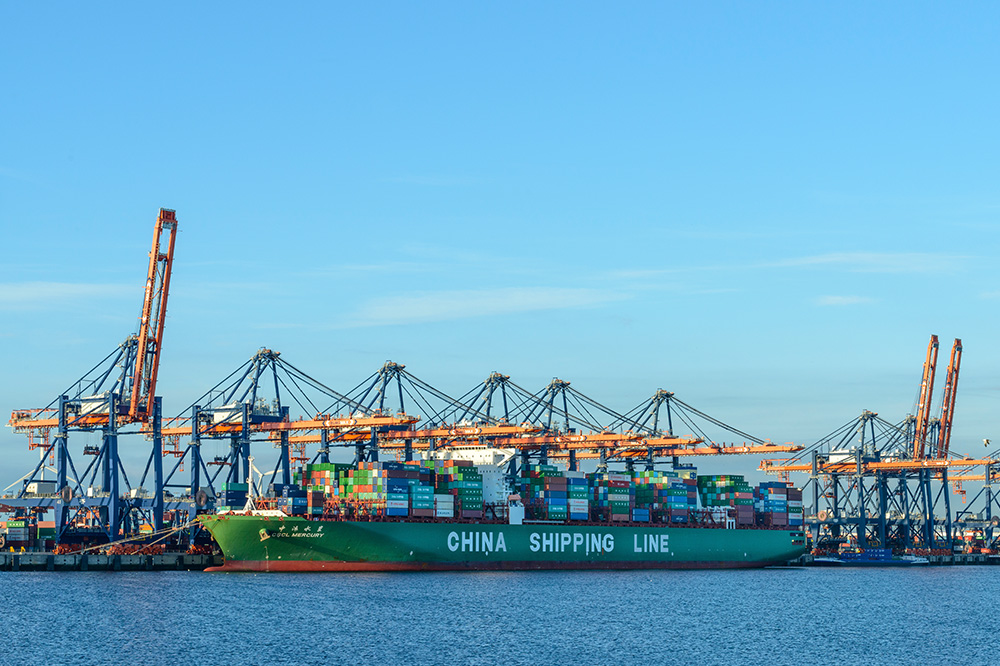As China’s premier delivered his annual state of the nation report to the country’s parliament, the impact of the Trump presidency on the global economic order loomed large in Beijing’s cavernous Great Hall of the People.
Faced with growing “instability and uncertainty” in the world, China will stand opposed to protectionism and play a greater role in global governance, Li Keqiang told some 3,000 delegates gathered for the annual National People’s Congress.
Although he did not mention Trump by name, his comments were clearly channelled at the new US administration.
Li’s speech followed a much-publicised address by China’s president, Xi Jinping, to the World Economic Forum in Davos in which he said Beijing was ready to vigorously defend free trade.
One does not have to look far to see that China’s actions show it has neither the appetite nor the capacity to take up the charge for a transparent, fair and rules-based global economy.
With Trump and his inner circle of anti-globalists bulldozing long-held tenets of the post-war neoliberal order, many eyes and much talk has turned to China as the new champion of globalisation.
Real action
For Beijing, this could certainly be an historic opportunity – if they were to follow it through. So with an America-shaped hole at the top of the global trading system, is China ready to step up to the mark?
The short answer to that question is no, not by a long shot. Words may grab headlines, but it is real action that matters.
On the surface Beijing may seem to be pushing its own form of globalisation, such as through the rising levels of Chinese foreign investment and outward-looking ventures like the grandly-named “One Belt, One Road” scheme. But this should not be confused with the promotion of an open trading system.
Indeed one does not have to look far to see that China’s actions show it has neither the appetite nor the capacity to take up the charge for a transparent, fair and rules-based global economy.

Trade is not a zero-sum game and the vacuum created by the Trump administration’s withdrawal will not be back-filled by China nor any other single country.
China’s exclusion from the Trans Pacific Partnership (TPP) – itself now abandoned by Trump – was not based on the West’s desire to thwart Beijing’s rise as an economic power nor to hold back its cross-border trade. Instead the overriding issue was, and remains, China’s promotion of its own self-interest to the detriment of its trading partners and the rules-based trading system.
China’s leaders may spout the language of reform, but stability and growth come before all other considerations and right now economic growth is at its lowest in 26 years.
Since joining the WTO in 2001, China’s deeply entrenched brand of economic nationalism has systematically subsidised state-owned enterprises (SOEs), facilitated the dumping of local products in foreign markets, blocked or impeded foreign multinationals from competing with Chinese SOEs, and obstructed Western efforts to enforce a level playing field—particularly with regards to protection of intellectual property.
Gaming the system
Were it not for saturation news coverage of the Trump victory and the White House’s ongoing disruption of the global order, this gaming of the trading system would be receiving far more attention. Moreover, on most of these key issues, China is moving backwards, not forwards.
China’s leaders may spout the language of reform, but stability and growth come before all other considerations and right now economic growth is at its lowest in 26 years.
For a regime that justifies its grip on power by delivering continued economic growth, this is what keeps China’s leaders awake at night.
At the same time the ruling party is grappling with a host of other potentially destabilising worries including large capital outflows, overcapacity in key sectors, a ballooning debt bubble and massive amounts of bad loans held by state-owned banks.
Meanwhile in the political arena the ever-present but increasing fear of instability has taken institutional paranoia to ever greater levels, cracking down on the press and foreign NGOs, stamping out even the slightest hint of criticism and aggressively censoring the internet. At the same time, nationalist passions are being stoked as China takes on a more assertive military posture in the South China Sea, raising anxiety levels with its neighbours and trading partners.
None of these things serve China’s ambitions to be a leader of free trade.
Trade is not a zero-sum game and the vacuum created by the Trump administration’s withdrawal into “America First” populism will not be back-filled by China nor any other single country. So while the US continues to sow disarray and uncertainty, other stakeholders in the global economy – including both non-state and state actors – will need to explore new ways to promote and preserve the rules-based trading system.
Against this background, the question for business strategists is how to manage the emerging trade risk?
First, they should learn the cautionary tale of Beijing’s modus operandi in the decade and a half since it joined the WTO.
Second, they need to pay close attention to China’s increasingly autocratic internal policies, as these will severely limit fair and effective Chinese leadership in the global trade arena.
And finally they must prepare for doing business in a fragmented, multipolar trade landscape, with all the increased uncertainty and risks this brings.
China undoubtedly has a major role in shaping the next phase of globalisation, but this does not mean that others will toe its line or emulate China’s business model. In the near-term – unless America changes course – there simply will be no clear global leader for free trade.





